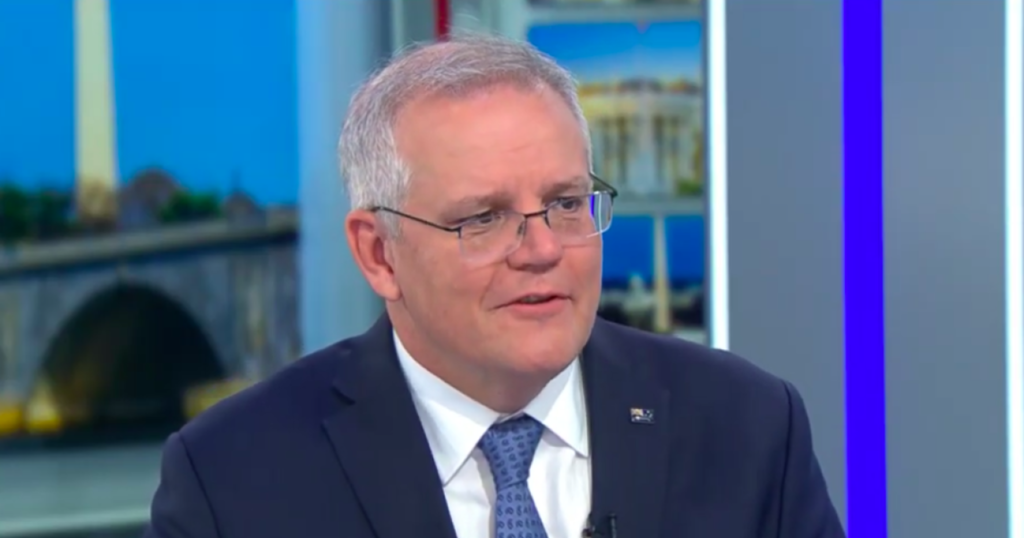
Events not marketing to determine election
Opinion

As we move out of a second pandemic year and into an election year, the political question to ask is whether Prime Minister Scott Morrison can control events or whether events will control him.
The past couple of months suggest the latter, not the former.
A few people have characterised Morrison’s use of new phrases and slogans as trial runs for the election, such as “Getting government out of people’s lives” and “Jabs and jobs”. Just as likely, though, he is having to change his message as events change.
It shows a deeply ingrained self-belief that if the marketing is right the Government can be sold, no matter what events arise. It happened in 2019 and it can happen again in 2022, the thinking goes.
That can only be successful, however, if voters forget about the past and do not judge the likelihood of future performance on the basis of past conduct – in short, gullibly suspend good judgement and believe whatever slogan or promise is put before them.
After all, the aim of all marketing is to make the “product” appear better than it is so that more people buy it.
That depends, of course, on whether Governments, Oppositions or candidates can be marketed at all. If they can, the 2022 election will be a red-car or blue-car race. Do you want to Morrison or the Labor leader, Anthony Albanese? That was what happened in 2019.
But as many generals find out, it is a big mistake to fight the next war on the basis of what happened in the last one.
With elections, the voters learn from the past as well. At least some of them do. The lesson of the past three years should be that you do not only get a Daggy Dad with a Sharks scarf. You also get a culture of doing corporate bidding; of disrespect for women; for misusing public money to get your own elected; and for allowing a National Party rump to rule the whole national agenda.
The most succinct warning about not reducing the electoral contest to one about the leaders alone was former Prime Minister Paul Keating’s description in 2016 of the then fairly popular, pre-2016-election Liberal Prime Minister Malcolm Turnbull.
Cherry on top of a compost heap
Keating said, “’He’s the cherry on top of a compost heap”.
One of the lessons of the pandemic surely should have been that government has been critical in ensuring the well-being of Australians and that it will continue to be in the future.
Morrison’s focus groups have probably told him that they are sick of lock-downs, and he has been against them from the start. Without the state premiers, Australia’s death and suffering in the pandemic would have been similar to that of the US or Britain.
But Morrison’s translation of “sick of lock-downs” and wanting “government out of their lives” is surely inaccurate, particularly with health.
The post-war history of Australia shows that Australians want government provision of health care and social security more generally. In 1946 the Chifley Labor Government got overwhelming support for a referendum empowering it to provide the Pharmaceutical Benefits Scheme and other social security measures.
Malcolm Fraser’s determination to undermine Medibank, the first universal health-insurance scheme, ultimately cost him office in 1983 as Bob Hawke promised Medibank. And every attempt to undermine it since has met with electoral backlash.
The fact that more than 95 per cent of people are vaccinated (one of the highest percentages in the world from a very slow start with the stroll-out) hardly indicates a desire to get government out of Australians’ lives.
Not Reaganites
Australians are not Reaganite Americans who see government as the problem. They look to it for solutions. And they want it to be clean and accountable.
Australians appreciated active state premiers and re-elected them accordingly – giving them majorities in almost direct proportion to their success in combating the pandemic.
But Morrison has a knack of turning white into black. He had to somehow make the success of government intervention to save lives and jobs fit with his penchant for small government. After 18 months of the state premiers corralling him into joining big government intervention with the National Plan, he said, “The National Plan was not about entrenching government in people’s lives. It was about getting government out of people’s lives.”
Surely, it was neither. It was just about dealing with the pandemic.
He began the small-government mantra in a speech to the Business Council of Australia – the champions of reducing government spending on health, welfare and education so taxes on them can be cut and so that there is more public money available to subsidise business.
It is going to be a difficult message to market, if it can be “marketed” at all. In marketing you can sell one place as a “renovator’s dream” and another as “ready to move into and live in immediately” and yet another as “close to shops and amenities” and another as one “to enjoy the peace far from the madding crowd”.
In this election, perhaps more than most, the major parties will not be able to sell themselves as being all things to all people or at least being all things to half the people. The Coalition is desperate to hold on to its blue-collar and socially conservative votes in the regions while retaining support in affluent and progressive parts of the cities, especially among women who are concerned about the environment and integrity in government.
Blue-collar vote
Labor also wants to hang on to its blue-collar vote while attracting more voters interested in the environment and human rights.
It is not possible. This is why support for the major parties has fallen in every election over the past 20 years. It is likely to approach 30 per cent in 2022. There will come a point of realignment, quite likely as soon as the next election with a hung Parliament.
All that said, events will be more powerful than marketing in determining the result of the election.
Omicron might turn out to be the vehicle that turns Covid into a manageable form of flu and the past two years are forgotten.
On the other hand, some new scandal might hit and further confirm that this Government is more interested in misusing public money to serve its National Party and corporate masters rather than the broader national good.
This article first appeared in The Canberra Times and other Australian media on 28 December 2021.
Thank you!
Newsport thanks its advertising partners for their support in the delivery of daily community news to the Douglas Shire. Public interest journalism is a fundamental part of every community.
Got a news tip? Let us know! Send your news tips or submit a letter to the editor here.
* Comments are the opinions of readers and do not represent the views of Newsport, its staff or affiliates. Reader comments on Newsport are moderated before publication to promote valuable, civil, and healthy community debate. Visit our comment guidelines if your comment has not been approved for publication.
